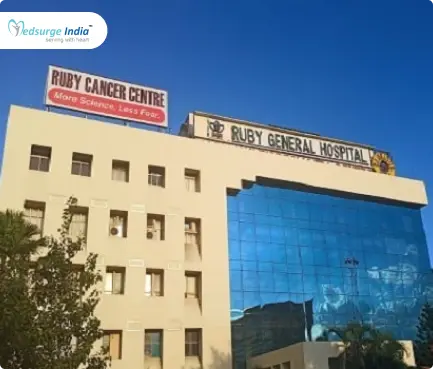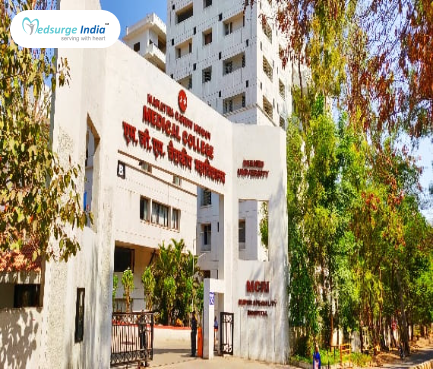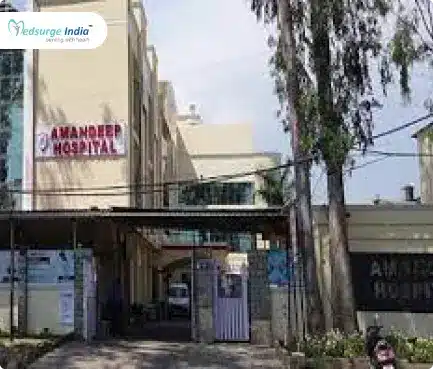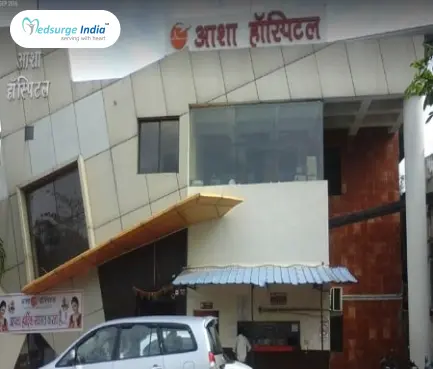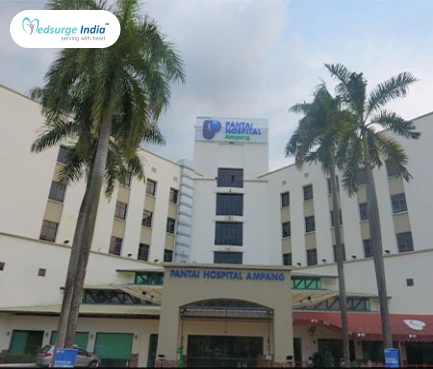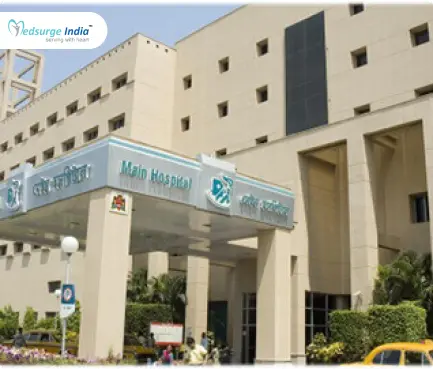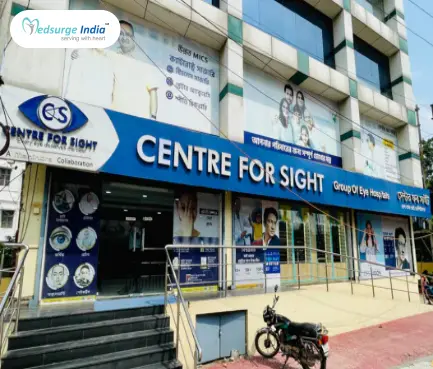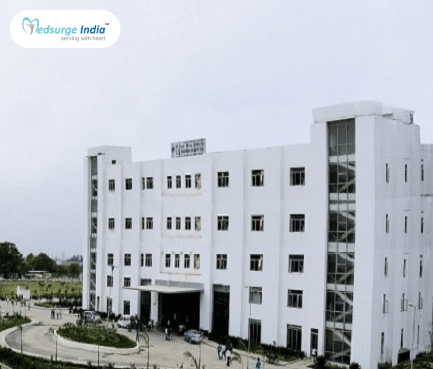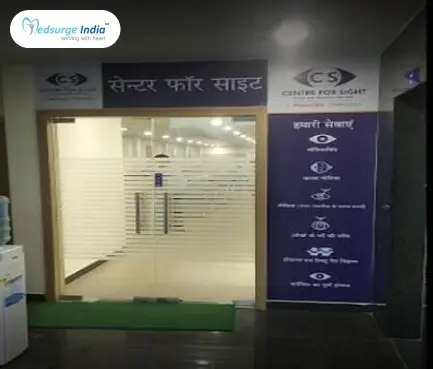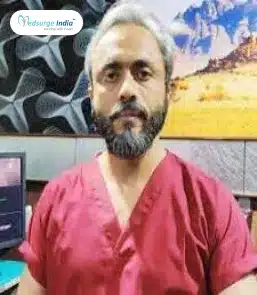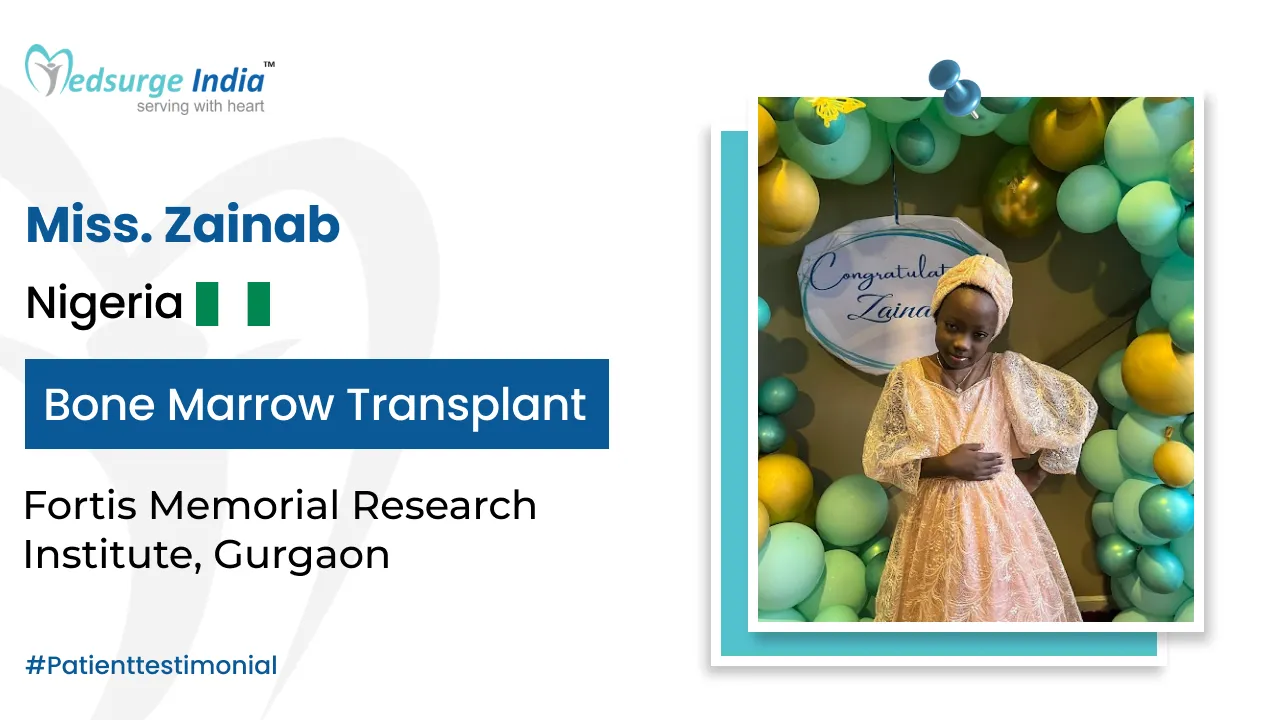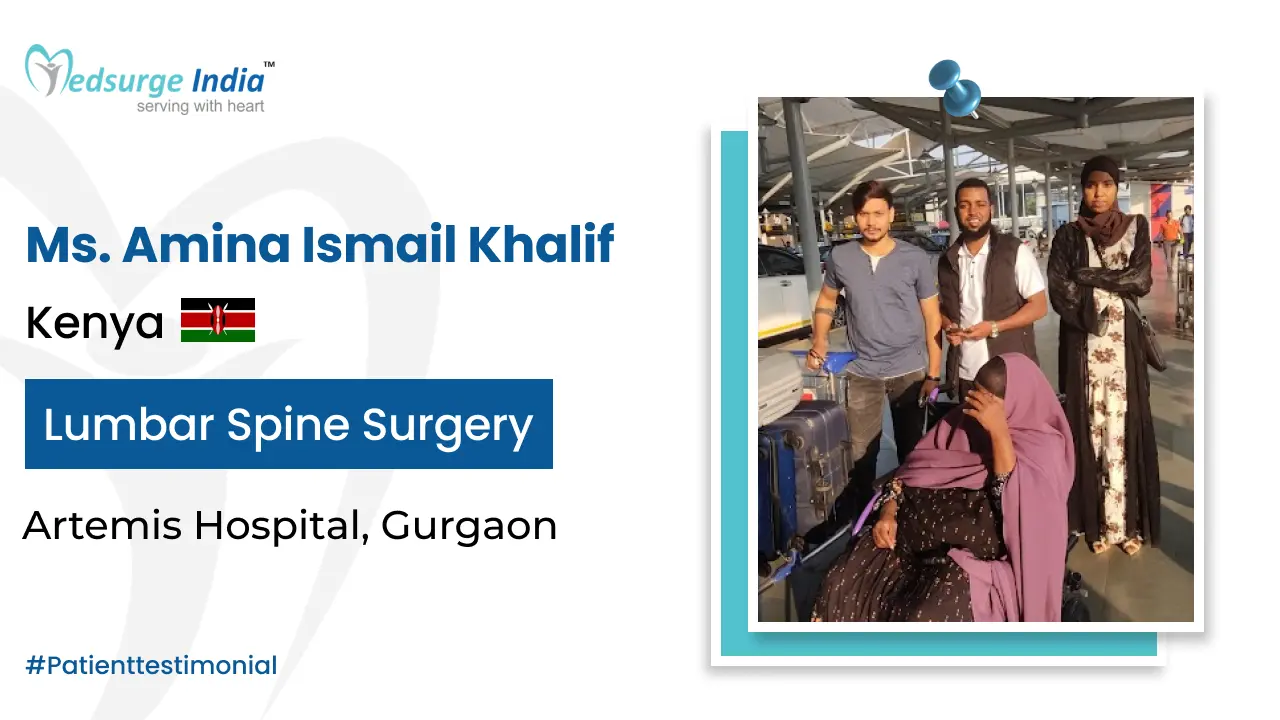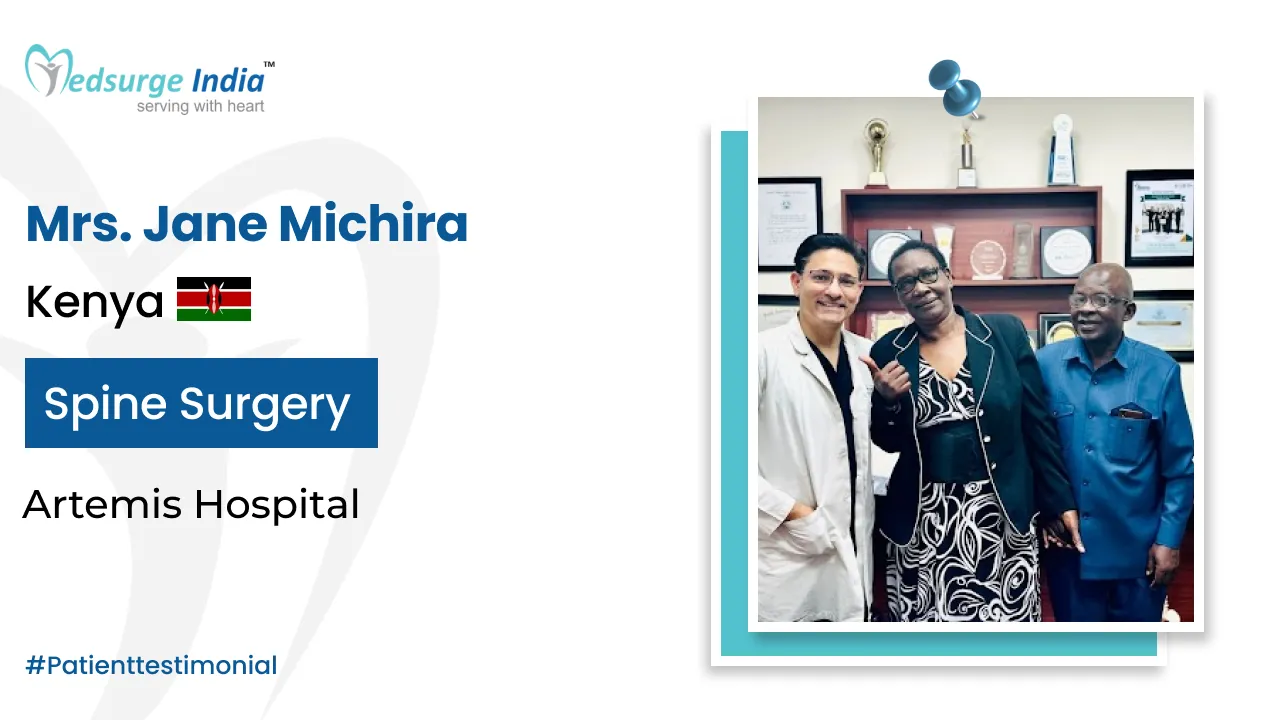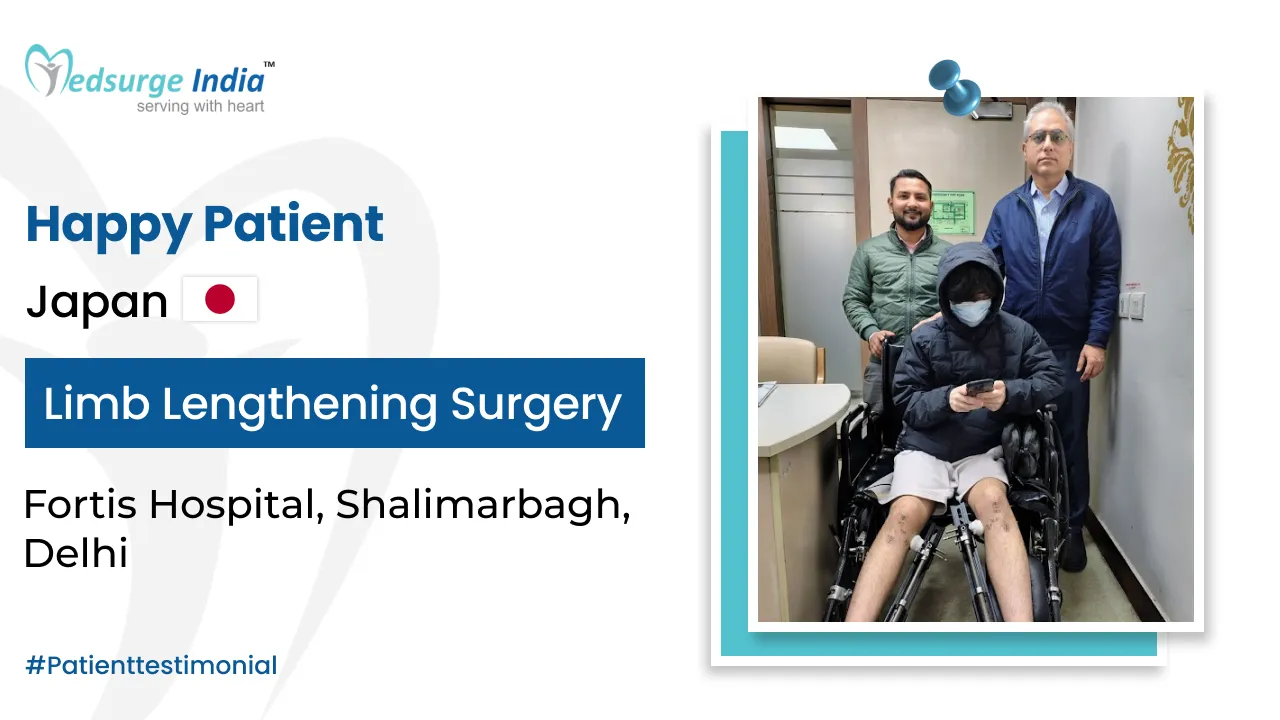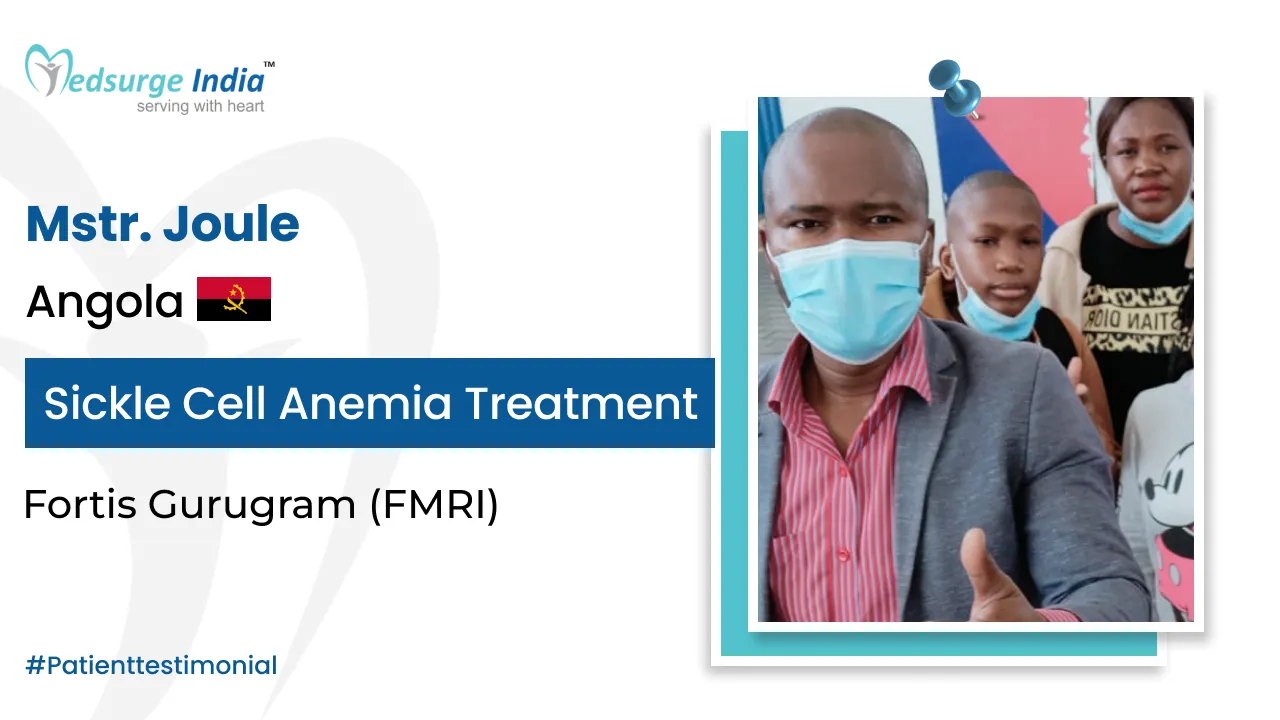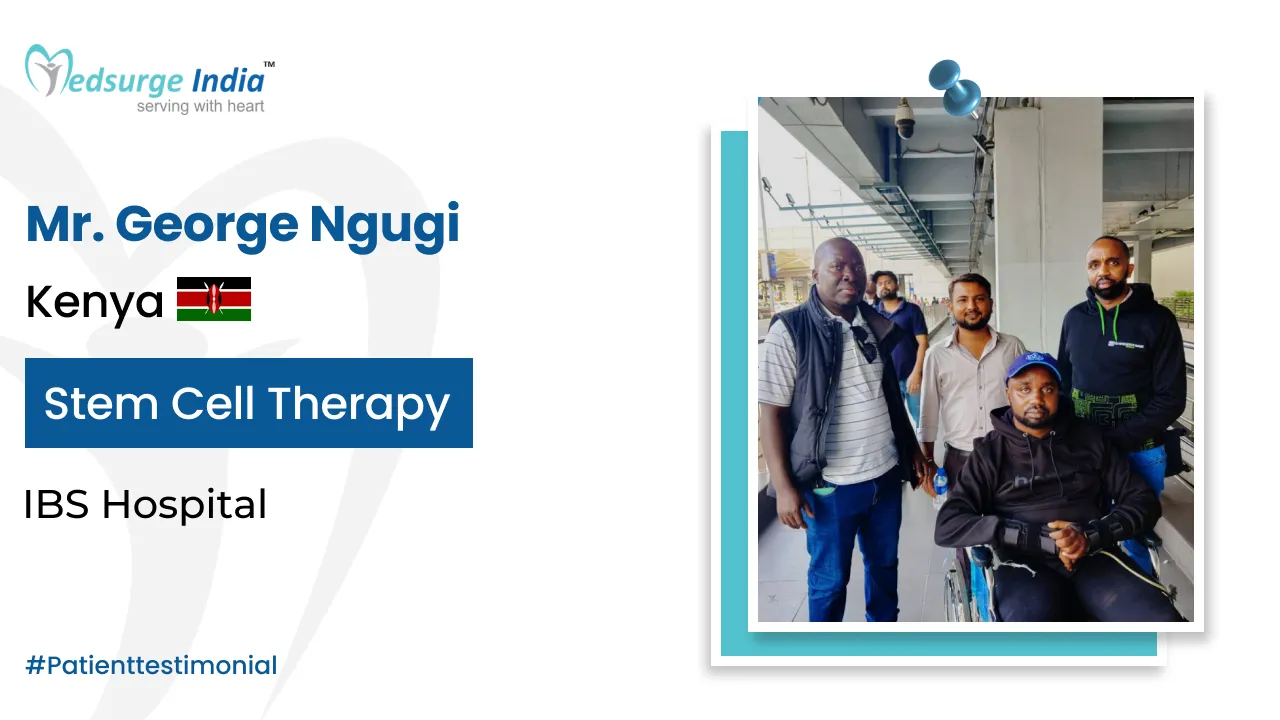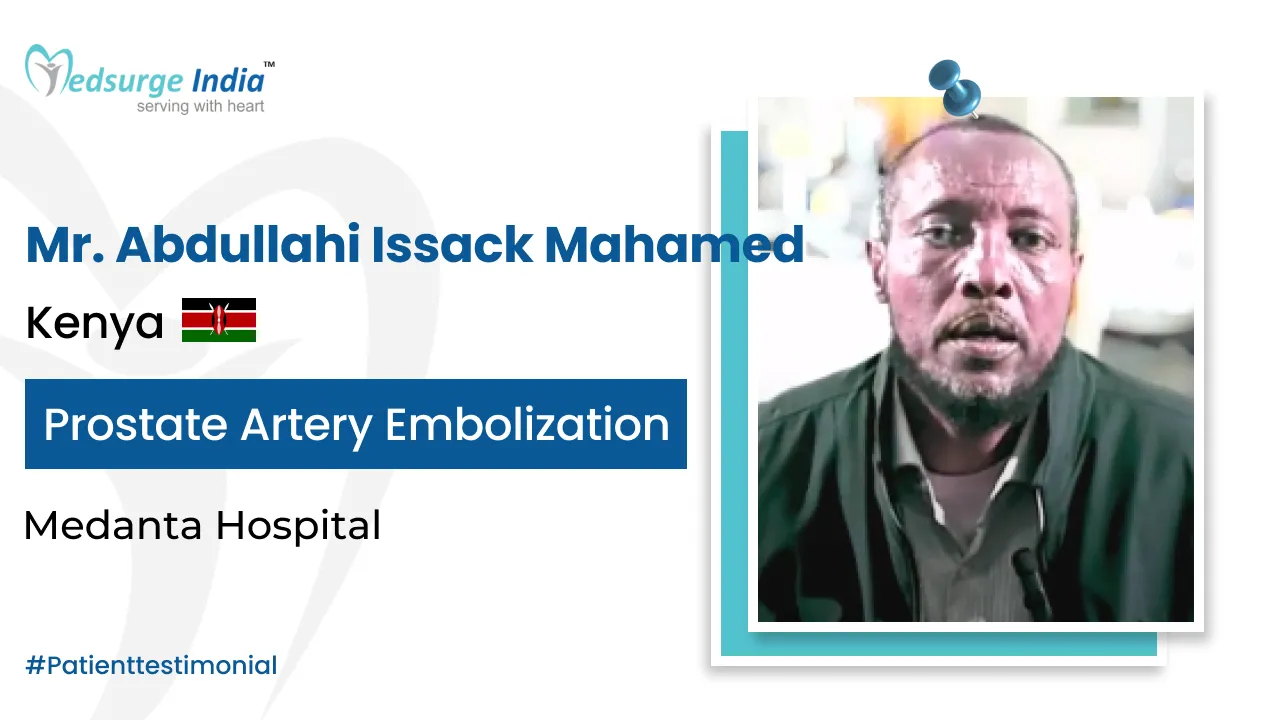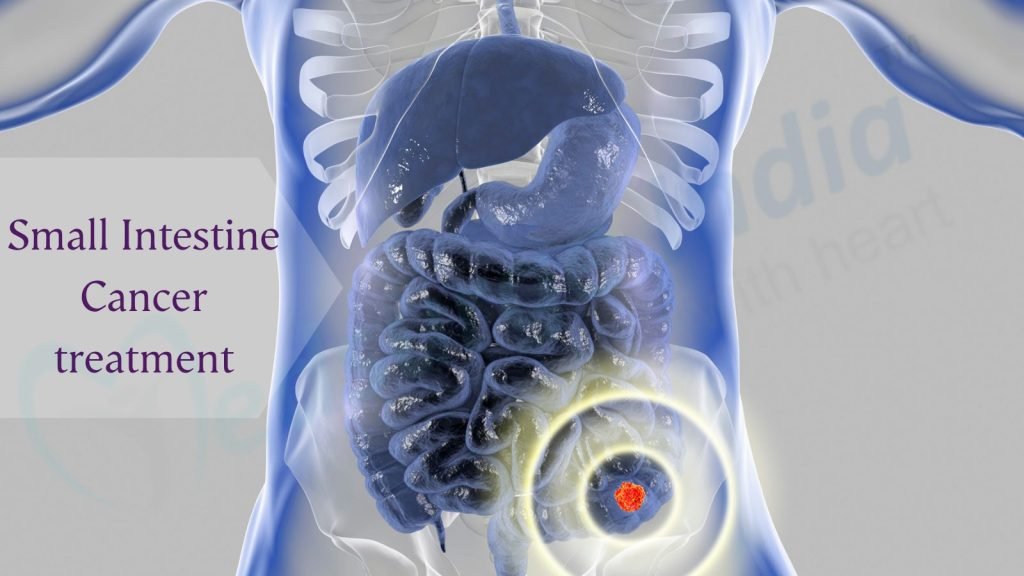
Small intestinal cancer is a rare kind of cancer that affects the small intestine. The small intestine, often known as the bowel, is a long tube that transports digested food from your stomach to your large intestine (colon).
Small bowel cancer develops when healthy cells in the small intestinal lining alter and expand out of control, resulting in a tumor. Tumors can be malignant or non cancerous. A malignant tumor is one that has the potential to grow and spread to other regions of the body.
A “benign tumor” is a tumor that has the potential to grow but not to spread. Cellular changes might take a long time to become apparent. Although the particular causes of small bowel cancer are not fully understood, both hereditary and environmental factors can produce such changes. As per your medical history and diagnostic report.
Small intestine cancer treatment in India depends upon the stage of cancer, the medical history, and the health of the patient. The team of specialists will plan your treatment for small intestine cancer accordingly.
In comparison to other Western countries, such as the USA, Small intestine cancer treatment cost in India is quite affordable. The nation is recognized for offering high-quality, affordable medical care. The greatest facilities are accessible with reasonable healthcare packages, premium medical tools, and the assurance of first-rate medical professionals for people traveling for small intestine cancer treatment in India.
How Small Intestine Works
The digestive system includes the small bowel. It digests food and nutrients so that they can be absorbed into the body. The small intestine is another name for the small bowel. It connects the stomach to the colon, which is the large intestine. The small intestine is separated into three sections:
- Duodenum: The part of the body that is closest to the stomach.
- Jejunum: The part of the digestive system located in the middle section.
- Ileum: The lowest part of the colon, which links to the large intestine.
The small intestine is around 15 feet long, folds numerous times to fit inside the abdomen, and accounts for about 3/4 of the digestive system.
Types of Small Intestinal Cancer
Because the small intestine is made up of a variety of cell types, many cancers can begin here. The following are the four main types of small intestinal cancers:
- Carcinoid Tumor: These tumors are a form of neuroendocrine tumor (NET) with a slower growth rate. Small intestinal tumors of this kind are the most prevalent.
- Adenocarcinomas: These malignancies begin in the gland cells that coat the intestine’s interior walls
- Lymphomas: Lymphocytes, which are immunological cells, are where these malignancies begin. Lymphomas can develop in practically any part of the body, including the small intestine.
- Sarcomas: Cancers that begin in connective tissues, such as muscle, are known as connective tissue cancers. Gastrointestinal stromal tumors are the most prevalent sarcomas in the intestine (GISTs).
Most specialists believe that small intestine cancer develops similarly to colorectal cancer. It starts as a polyp, a tiny growth on the inner lining of the intestine.
A polyp can develop into a malignancy over time. The duodenum is where most small intestine cancers (particularly adenocarcinomas) start.
Sign and Symptoms of Small Intestine Cancer
Small intestine cancer symptoms are often unclear and can be caused by other, more common causes. Unfortunately, this implies that it takes at least a few months from the onset of symptoms to the diagnosis of cancer.
The following are some of the most common signs and symptoms of small intestinal cancer:
- Pain in the stomach (abdomen)
- Vomiting and nausea
- Unwanted loss of weight
- Weakness and exhaustion (fatigue)
- Stools in a dark color (from bleeding into the intestine)
- Low level of red blood cells (anemia)
- The skin and eyes turn a yellowish color (jaundice)
The pain in the stomach is frequently the first sign. This pain is usually crampy and it is not always there. It could, for example, begin or worsen after you eat.
The movement of digested food through the intestine can be slowed as the tumor grows larger. This can result in further pain. If the tumor grows large enough, it might restrict the gut completely, preventing anything from passing through. This causes severe nausea and vomiting, as well as discomfort.
Other factors are more likely to cause these issues than cancer. Still, if you have any of these, especially if they don’t go away or are growing worse, see your doctor to determine the cause and, if necessary, receive treatment for small intestine cancer.
Small Intestine Cancer Treatment Cost in India
Small Intestine Cancer Treatment cost in India varies from Rs. 80,000 to Rs. 8 lakh (approximately $1,000 to $9600). The price of the treatment will differ based on the treatment type in accordance with the patient’s condition.
Factors That Affect The Cost of Small Intestine Cancer Treatment in India
Small intestine cancer treatment cost in India can depend on the patient depends on many factors, they are:
- The hospital, the patient chooses.
- Fee for the team of doctors.
- Standard tests and diagnostic procedures.
- Type of surgery performed
- Cost of chemo/radiation therapy
- The price of the needed post-procedure care
- Small intestine cancer treatment cost in India can depend on the type of hospital and rooms you stay.
For foreign patients traveling to Turkey, Medsurge India provides the finest Small intestine cancer treatment cost in India at a reasonable cost, all while being supervised by top medical professionals.
Diagnosis of Small Intestine Cancer
Small intestine malignancies are frequently discovered as a result of indications or symptoms that a person is experiencing. However, these signs and symptoms are not always adequate to determine whether a person has small intestinal cancer or another form of health problem. Exams and testing will be required to confirm the diagnosis of small intestinal cancer if a tumor is detected.
Medical History or Physical Exam: You will be asked about your symptoms, probable risk factors, family history, and other medical disorders when a doctor takes your medical history. The doctor will then examine you, paying special attention to your abdomen for any swelling or sounds of the intestine straining to clear a blockage. The following test will be performed to confirm the diagnosis of small intestine cancer:
- Blood Tests
- Imaging Tests
- Barium X-rays Tests
- Computed tomography (CT) scan
- MRI
- Endoscopy
- Colonoscopy
- Liver Function Tests
- Laparotomy
- Biopsy
Helpful –
Best Cancer Hospitals in India
1. Fortis Memorial Research Institute, Gurgaon
2. Apollo Hospitals, Greams Road, Chennai
3. Medanta – The Medicity, Gurgaon
4. Indraprastha Apollo Hospital, New Delhi
5. Artemis Hospital, Gurgaon
6. Kokilaben Dhirubhai Ambani Hospital, Mumbai
7. BLK Super Specialty Hospital, New Delhi
8. Global Hospitals, Chennai
9. MGM Healthcare, Chennai
10. Apollo Gleneagles Hospital, Kolkata
Best Oncologist in India
- Dr. Vinod Raina
- Dr. Ankur Bahl
- Dr. Prasad E
- Prof. Dr. Suresh H. Advani
- Dr. Rajesh Mistry
- Dr. Raja Sundaram
Read More – https://www.cancer.gov/types/small-intestine/patient/small-intestine-treatment-pdq
Get Free Cost Estimation
Procedure
The type of small intestinal cancer you have and how far it has gone determine your treatment options. When providing treatment suggestions, your doctor will consider the following factors:
- Your Symptoms
- Key personal Information
- Medical history
- Current prognosis of cancer in the body
Small intestine cancer treatment in India is determined by the kind and stage of the disease. Among the possibilities are:
- Surgery
- Chemotherapy
- Targeted Drug Therapy
- Immunotherapy
Small intestine cancer treatment in India is primarily determined by whether or not the disease can be entirely eliminated through surgery. Cancers that can be entirely excised are referred to as resectable, whereas those that cannot are referred to as unresectable.
Some doctors are also experimenting with chemo or radiation therapy prior to surgery (known as neoadjuvant therapy). The goal is that this will decrease the tumor and make surgery easier, although it’s unclear how effective this treatment will be thus far.
What Is the Survival Rate of Small Intestine Cancer
Small intestine cancer has a worse prognosis than colon cancer, and only surgery improves survival.
The 5-year survival rate is 73 % if the disease has spread to nearby tissues and organs by the time it is diagnosed. The survival rate of small intestine cancer is 43 % if the tumor has spread to other regions of the body.
The duodenum, which is the first portion of the small intestine, is where small intestine cancer develops. The symptoms are frequently confusing and might be mistaken for those of other disorders. This can make it difficult to detect cancer in its early stages.
However, early detection and treatment can considerably improve a person’s outlook, so any unexplained symptoms, such as weight loss or abdominal pain, should be reported to a doctor.
To book your appointment on an early basis, click on Medsurge India.
Why Do Individuals Prefer to Have Small Intestine Cancer Treatment in India
The country has some of the best medical care facilities and services in Asia, making medical tourism in India very popular. The best Hospitals for small intestine cancer treatment in India provide all types of disease-related and cancer-related surgeries using advanced technology. Also, the small intestine cancer treatment cost in India is much more affordable as compared to other states or nations around the world. An international patient can expect to pay 50-60% less for Small Intestine Cancer Treatment in India.
The hospitals that treat small intestine cancer treatment in India provides comprehensive appropriate treatment, including comprehensive pre-operative evaluations, minimally invasive surgical options, and post-operative rehabilitation programs. Patients can expect personalized treatment, individualized attention, and compassionate care at these medical facilities. The hospitals are accredited by top international organizations such as the National Accreditation Board for Hospitals and Healthcare Providers (NABH) or the Joint Commission International (JCI).
What to Look for When Choosing a Hospital For Small Intestine Cancer Treatment in India
Indian hospitals that perform surgery for cancer are well-known for their hospitality and patient care services providing the finest hospital and oncologist in India. However, choosing a suitable hospital for treating small intestine cancer treatment in India can be difficult for an international patient. It is a significant decision that must be made with several factors in mind, including:
- Quality certificates and accreditations
- Hospital and transportation facility location
- Team of doctors and surgeons
- Advanced diagnostic and therapeutic equipment
- International patient assistance
How Can Medsurge India Help
Medsurge India is a prestigious support system for patients looking for doctors, hospitals, and specialized treatments. Our staff will provide you with a list of licensed, renowned, and trustworthy physicians and medical facilities in relation to your medical needs. Additionally, we offer a treatment strategy that fits your budget. Apart, we assist patients with obtaining travel authorizations, medical visas, and a multitude of other things.
The Most Important Frequently Asked Questions
Q: How Long Is Recovery from Small Intestine Surgery?
A: Recovering from a resection of the small intestine
The usual stay in the hospital is six days, although full recuperation from resection surgery takes four to six weeks. The amount of time it takes depends on your health before and after surgery.
Q: What Is the Meaning of 5 Year Survival Rate?
A: The proportion of people who will live five years after being diagnosed. It excludes people who die as a result of other conditions. Women with cervical cancer, for example, have a 5-year relative survival rate of around 66 %.
Q: What Can You Eat After Small Intestine Surgery?
A: After a bowel resection, you should be able to drink fluids right away. After a few days, you can begin to eat actual meals. Start with soft foods like cooked vegetables, bananas, avocados, mashed potatoes, and tender proteins, according to your doctor.
Q: Can You Live Without Small Intestine?
A: Most people can live without a stomach or large intestine, but living without a small intestine is more difficult. Nutrients must be injected directly into the bloodstream (intravenous or IV) in liquid form when all or part of the small intestine is removed or stops working.
Q: Can the Small Intestine Regrow?
A: Because of its complicated structure and functions, the small intestine (SI) is difficult to regenerate or replace. Recent advances in stem cell research, innovative engineering technologies, and regenerative medicine techniques have given rise to new optimism for resolving SI clinical difficulties.
Top Hospitals for Small Intestine Cancer Treatment in India
Top Doctors for Oncology and Oncosurgery
Dr. Ashok Kumar Singh
Consultant
Experience: 10 years of experience
Max Super Speciality Hospital, Patparganj, New Delhi
New Delhi, India
Dr. Amish Chaudhury
Director
Experience: 14 years of experience
Asian Institute of Medical Sciences, Faridabad
Faridabad, India
Dr. Geeta Kadayaprath
Head of Department
Experience: 15 years of experience
Max Super Speciality Hospital, Patparganj, New Delhi
New Delhi, India
Dr. Kumara Swamy
Senior Consultant
Experience: 36 years of experience
Aster CMI Hospital (Hebbel) Bangalore
Bangalore, India
Dr. Amol A
Consultant
Experience: 10 years of experience
Dr. L H Hiranandani Hospital, Mumbai
Mumbai, India
Dr. Anshuman Kumar
Director
Experience: 13 years of experience
Dharamshila Narayana Superspeciality Hospital New Delhi
New Delhi, India
Dr. Harsha Doddihal
Consultant
Experience: 15 years of experience
Fortis Hospital, Bangalore (Bannerghatta Road)
Bangalore, India
Dr. Indranil Ghosh
Consultant , MBBS, MD, DM
Experience: 16 years of experience
Apollo Gleneagles Hospital, Kolkata
Kolkata, India
Dr. Koustav Mazumder
Experience: 13+ years of experience
Narayana Superspeciality Hospital, Shibpur, Howrah
Howrah, India
Dr. Vijay Anand Reddy
Director
Experience: 30 years of experience
Apollo Hospitals, Jubilee Hills Hyderabad
Hyderabad, India
Dr. Bhawana Saddy Awasthy
Senior Consultant
Experience: 20 years of experience
Marengo Asia Hospitals Formerly W Pratiksha Hospital, Gurgaon
Gurgaon, India
Dr. Dhwanee Shardul Thakkar
Consultant
Experience: 8 years of experience
Medanta – The Medicity, Gurgaon
Gurgaon, India
Dr Sivaram G
Consultant
Experience: 18 years of experience
Apollo Cancer Hospital, Chennai
Chennai, India
Dr. S. Jagadesh Chandra Bose
Senior Consultant
Experience: 26
Dr. Rela Institute and Medical Centre, Chennai

